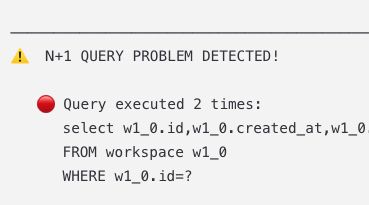1. Repository
2. Prefered Headers to Ignore Annoying Warnings:
1#![allow(unused)] 2#![allow(non_camel_case_types)] 3#![allow(non_snake_case)]
3. Utility Struct to Perform Arithmetic on for BigUint
BigUint1struct Fp<'a> { 2 p: &'a BigUint, 3} 4 5impl<'a> Fp<'a> { 6 fn power(&self, u: &BigUint, i: u32) -> BigUint { 7 u.modpow(&BigUint::from(i), &self.p) 8 } 9 10 fn add(&self, u: &BigUint, v: &BigUint) -> BigUint { 11 (u + v).modpow(&BigUint::from(1u32), self.p) 12 } 13 fn mul(&self, u: &BigUint, v: &BigUint) -> BigUint { 14 (u * v).modpow(&BigUint::from(1u32), self.p) 15 } 16 fn add_inverse(&self, u: &BigUint) -> BigUint { 17 assert!( 18 u < &self.p, 19 "{}", 20 format!("{} >= {} should not happen", u, &self.p) 21 ); 22 self.p - u 23 } 24 fn mul_inverse(&self, u: &BigUint) -> BigUint { 25 if self.p < &BigUint::from(2u32) { 26 BigUint::from(1u32) 27 } else { 28 let two = BigUint::from(2u32); 29 let power = self.add(&self.p, &self.add_inverse(&two)); 30 u.modpow(&power, &self.p) 31 } 32 } 33}
4. Definition of Addition and Double on Elliptic Curve
1use num_bigint::BigUint; 2 3#[derive(PartialEq, Clone, Debug)] 4enum Point { 5 Coor(BigUint, BigUint), 6 Identity, 7} 8 9struct EllipticCurve { 10 a: BigUint, 11 b: BigUint, 12 p: BigUint, 13} 14 15impl EllipticCurve { 16 fn double(&self, h: &Point) -> Point { 17 let fp = Fp { p: &self.p }; 18 let h_on_curve = self.is_on_curve(h); 19 assert!(h_on_curve, "point h is not on the curve"); 20 // s = (3*x^2 + a)/(2*y) 21 // x_ = s^2 - 2*x 22 // y_ = s*(x - x_) - y 23 match h { 24 Point::Identity => Point::Identity, 25 Point::Coor(x, y) => { 26 let three_times_xsq = fp.mul(&BigUint::from(3u32), &fp.power(x, 2)); 27 let two_times_y = fp.mul(&BigUint::from(2u32), &y); 28 let inverse_two_times_y = fp.mul_inverse(&two_times_y); 29 let s = fp.mul(&fp.add(&three_times_xsq, &self.a), &inverse_two_times_y); 30 let x_ = fp.add( 31 &fp.power(&s, 2), 32 &fp.add_inverse(&fp.mul(&BigUint::from(2u32), x)), 33 ); 34 let s_times_x_minus_x_ = fp.mul(&s, &fp.add(x, &fp.add_inverse(&x_))); 35 let y_ = fp.add(&s_times_x_minus_x_, &fp.add_inverse(y)); 36 Point::Coor(x_, y_) 37 } 38 } 39 } 40 41 fn add(&self, h: &Point, k: &Point) -> Point { 42 let fp = Fp { p: &self.p }; 43 let h_on_curve = self.is_on_curve(h); 44 let k_on_curve = self.is_on_curve(k); 45 assert!(*h != *k, "two points should not be the same"); 46 assert!(h_on_curve, "point h is not on the curve"); 47 assert!(k_on_curve, "point k is not on the curve"); 48 match (h, k) { 49 (Point::Identity, _) => k.clone(), 50 (_, Point::Identity) => h.clone(), 51 (Point::Coor(x1, y1), Point::Coor(x2, y2)) => { 52 // s = (y2-y1)/(x2-x1) 53 // x3 = s^2 - x1 - x2 54 // y3 = s*(x1-x3) - y1 55 56 let y1_plus_y2 = fp.add(y1, y2); 57 if x1 == x2 && y1_plus_y2 == BigUint::from(0u32) { 58 return Point::Identity; 59 } 60 61 let s = fp.mul( 62 &(y2 + &fp.add_inverse(y1)), 63 &fp.mul_inverse(&(x2 + &fp.add_inverse(x1))), 64 ); 65 let x3 = fp.add( 66 &fp.add(&fp.power(&s, 2), &fp.add_inverse(x1)), 67 &fp.add_inverse(x2), 68 ); 69 70 let y3 = fp.add( 71 &fp.mul(&s, &(x1 + &fp.add_inverse(&x3))), 72 &fp.add_inverse(y1), 73 ); 74 Point::Coor(x3, y3) 75 } 76 } 77 } 78 79 fn scalar_mul(&self, c: &Point, d: &BigUint) -> Point { 80 let mut t = c.clone(); 81 for i in (0..(d.bits() - 1)).rev() { 82 t = self.double(&t); 83 if d.bit(i) { 84 t = self.add(&t, c); 85 } 86 } 87 t 88 } 89 90 fn is_on_curve(&self, point: &Point) -> bool { 91 let fp = Fp { p: &self.p }; 92 if let Point::Coor(x, y) = point { 93 let y2 = fp.power(y, 2); 94 let x3 = fp.power(x, 3); 95 let ax = fp.mul(&self.a, x); 96 y2 == fp.add(&x3, &fp.add(&ax, &self.b)) 97 } else { 98 true 99 } 100 } 101}
5. Operator Overloading
5.1. New Struct Field
We wish to convert BigUint into our own struct Field and define all the usual operation on , i.e., among the Field objects.
That is, we wish to overload the operators:
1+ - * /
without the utility struct Fp.
1#[derive(PartialEq, Clone, Debug)] 2pub struct Field<'a> { 3 value: BigUint, 4 p: &'a BigUint, 5}
5.2. New Definition of Point and EllipticCurve base on Field
1pub enum Point<'a> { 2 Coor(Field<'a>, Field<'a>), 3 Identity, 4} 5 6pub struct EllipticCurve<'a> { 7 a: Field<'a>, 8 b: Field<'a>, 9}
5.3. Operator Overloadings on Field
5.3.1. Implementations
1pub struct Field<'a> { 2 pub value: BigUint, 3 pub p: &'a BigUint, 4} 5impl<'a> Field<'a> { 6 pub fn new(i: u32, p: &'a BigUint) -> Self { 7 Field { 8 value: BigUint::from(i), 9 p, 10 } 11 } 12} 13 14impl<'a> Add<&Field<'a>> for &Field<'a> { 15 type Output = Field<'a>; 16 17 fn add(self, rhs: &Field) -> Self::Output { 18 let value = (&self.value + &rhs.value).modpow(&BigUint::from(1u32), self.p); 19 Field { value, p: self.p } 20 } 21} 22 23impl<'a> Sub<&Field<'a>> for &Field<'a> { 24 type Output = Field<'a>; 25 26 fn sub(self, rhs: &Field) -> Self::Output { 27 let value: BigUint; 28 let a = &self.value; 29 let b = &rhs.value; 30 if a > b { 31 value = a - b; 32 } else { 33 value = (self.p + a) - b; 34 } 35 Field { value, p: &self.p } 36 } 37} 38 39impl<'a> Mul<BigUint> for &Field<'a> { 40 type Output = Field<'a>; 41 fn mul(self, rhs: BigUint) -> Self::Output { 42 let a = &self.value; 43 let value = (a * &rhs).modpow(&BigUint::from(1u32), &self.p); 44 return Field { value, p: self.p }; 45 } 46} 47 48impl<'a> Mul<&Field<'a>> for &Field<'a> { 49 type Output = Field<'a>; 50 51 fn mul(self, rhs: &Field) -> Self::Output { 52 let value = (&self.value * &rhs.value).modpow(&BigUint::from(1u32), self.p); 53 Field { value, p: self.p } 54 } 55} 56 57impl<'a> Div<&Field<'a>> for &Field<'a> { 58 type Output = Field<'a>; 59 60 fn div(self, rhs: &Field) -> Self::Output { 61 let left = &self.value; 62 let right = &rhs.value; 63 let p_minus_2 = (self.p - BigUint::from(2u32)).modpow(&BigUint::from(1u32), self.p); 64 65 let multiplicative_inverse_right = right.modpow(&p_minus_2, &self.p); 66 let value = (left * &multiplicative_inverse_right).modpow(&BigUint::from(1u32), self.p); 67 Field { value, p: &self.p } 68 } 69}
5.3.2. Rewrite of EllipticCurve::double With Field in Place of BigUint
1impl<'a> EllipticCurve<'a> { 2 pub fn double(&self, h: &Point<'a>) -> Point { 3 let h_on_curve = self.is_on_curve(h); 4 assert!(h_on_curve, "point h is not on the curve"); 5 // s = (3*x^2 + a)/(2*y) 6 // x_ = s^2 - 2*x 7 // y_ = s*(x - x_) - y 8 match h { 9 Point::Identity => Point::Identity, 10 Point::Coor(xp, yp) => { 11 if yp.value == BigUint::from(0u32) { 12 return Point::Identity; 13 } 14 let two_times_yp = yp * BigUint::from(2u32); 15 let s = xp * xp; 16 let s = &s * BigUint::from(3u32); 17 let s = &s + &self.a; 18 let s = &s / &two_times_yp; 19 20 let two_times_x = xp * BigUint::from(2u32); 21 let new_x = &s * &s; 22 let new_x = &new_x - &two_times_x; 23 24 let new_y = xp - &new_x; 25 let new_y = &s * &new_y; 26 let new_y = &new_y - yp; 27 28 Point::Coor(new_x, new_y) 29 } 30 } 31 } 32}
5.3.3. Rewrite of EllipticCurve::add With Field in Place of BigUint
1impl<'a> EllipticCurve<'a> { 2 pub fn add(&self, h: &Point<'a>, k: &Point<'a>) -> Point { 3 let h_on_curve = self.is_on_curve(h); 4 let k_on_curve = self.is_on_curve(k); 5 assert!(*h != *k, "two points should not be the same"); 6 assert!(h_on_curve, "point h is not on the curve"); 7 assert!(k_on_curve, "point k is not on the curve"); 8 match (h, k) { 9 (Point::Identity, _) => k.to_owned(), 10 (_, Point::Identity) => h.to_owned(), 11 (Point::Coor(x1p, y1p), Point::Coor(x2p, y2p)) => { 12 if x1p == x2p && (y1p + y2p).value == BigUint::from(0u32) { 13 return Point::Identity; 14 } 15 // s = (y2-y1)/(x2-x1) 16 // x3 = s^2 - x1 - x2 17 // y3 = s*(x1-x3) - y1 18 19 let s = y2p - y1p; 20 let x2_minus_x1 = x2p - x1p; 21 let s = &s / &x2_minus_x1; 22 let s_square = &s * &s; 23 24 let x3p = &s_square - &x1p; 25 let x3p = &x3p - &x2p; 26 27 let y3p = &s * &(x1p - &x3p); 28 let y3p = &y3p - &y1p; 29 30 Point::Coor(x3p, y3p) 31 } 32 } 33 } 34}
5.3.4. Rewrite of EllipticCurve::is_on_curve With Field in Place of BigUint
1impl<'a> EllipticCurve<'a> { 2 fn is_on_curve(&self, point: &Point) -> bool { 3 if let Point::Coor(x, y) = point { 4 let y2 = y * y; 5 let x3 = x * x; 6 let x3 = &x3 * x; 7 let ax = x * &self.a; 8 y2 == &(&x3 + &ax) + &self.b 9 } else { 10 true 11 } 12 } 13}
5.3.5. EllipticCurve::scalar_mul --- the Double and Add Algorithm under Field
1impl<'a> EllipticCurve<'a> { 2 pub fn scalar_mul(&'a self, q: &Point<'a>, k: &Field<'a>) -> Point<'a> { 3 let mut t = q.clone(); 4 for i in (0..(k.value.bits() - 1)).rev() { 5 t = self.double(&t); 6 if k.value.bit(i) { 7 t = self.add(&t, q); 8 } 9 } 10 t 11 } 12}
6. Test Cases
The following 3 cases can pass successfully:
1running 4 tests 2test test::test_ec_point_add_identity ... ok 3test test::test_ec_point_addition ... ok 4test test::test_double ... ok 5test test::test_scalar_mul ... ok
1#[cfg(test)] 2mod test { 3 use super::*; 4 #[test] 5 fn test_ec_point_addition() { 6 let p = BigUint::from(17u32); 7 let ec = EllipticCurve { 8 a: Field::new(2, &p), 9 b: Field::new(2, &p), 10 }; 11 12 // (6, 3) + (5, 1) = (10, 6); 13 let p1 = Point::Coor(Field::new(6, &p), Field::new(3, &p)); 14 let p2 = Point::Coor(Field::new(5, &p), Field::new(1, &p)); 15 let r = Point::Coor(Field::new(10, &p), Field::new(6, &p)); 16 17 let res = ec.add(&p1, &p2); 18 assert_eq!(r, res); 19 } 20 #[test] 21 fn test_ec_point_add_identity() { 22 let p = BigUint::from(17u32); 23 let ec = EllipticCurve { 24 a: Field::new(2, &p), 25 b: Field::new(2, &p), 26 }; 27 28 // (6, 3) + (5, 1) = (10, 6); 29 let p1 = Point::Coor(Field::new(6, &p), Field::new(3, &p)); 30 let p2 = Point::Identity; 31 let expect = Point::Coor(Field::new(6, &p), Field::new(3, &p)); 32 33 let result = ec.add(&p1, &p2); 34 assert_eq!(expect, result); 35 } 36 37 #[test] 38 fn test_scalar_mul() { 39 let p = BigUint::from(17u32); 40 let ec = EllipticCurve { 41 a: Field::new(2, &p), 42 b: Field::new(2, &p), 43 }; 44 let q = Point::Coor(Field::new(5, &p), Field::new(1, &p)); 45 let k = BigUint::from(16u32); 46 let result = ec.scalar_mul(&q, &k); 47 48 let expected = Point::Coor(Field::new(10, &p), Field::new(11, &p)); 49 assert_eq!(result, expected); 50 } 51 52 #[test] 53 fn test_double() { 54 let p = BigUint::from(17u32); 55 let ec = EllipticCurve { 56 a: Field::new(2, &p), 57 b: Field::new(2, &p), 58 }; 59 60 let p = Point::Coor(Field::new(6, &p), Field::new(3, &p)); 61 let double = ec.double(&p); 62 let p_on_curve = ec.is_on_curve(&double); 63 assert!(p_on_curve); 64 } 65}
7. Specific case: The Secp256k1
Secp256k1Configuration of the values: n(order), p, a, b can be found in this wiki page.
We test our algorithm by the following test case:
1fn test_secp256k1() { 2 let p = BigUint::parse_bytes( 3 b"FFFFFFFFFFFFFFFFFFFFFFFFFFFFFFFFFFFFFFFFFFFFFFFFFFFFFFFEFFFFFC2F", 4 16, 5 ) 6 .expect("Parsing fail for p"); 7 8 let a = BigUint::parse_bytes( 9 b"0000000000000000000000000000000000000000000000000000000000000000", 10 16, 11 ) 12 .expect("Parsing fail for a"); 13 14 let b = BigUint::parse_bytes( 15 b"0000000000000000000000000000000000000000000000000000000000000007", 16 16, 17 ) 18 .expect("Parsing fail for b"); 19 20 let n = BigUint::parse_bytes( 21 b"FFFFFFFFFFFFFFFFFFFFFFFFFFFFFFFEBAAEDCE6AF48A03BBFD25E8CD0364141", 22 16, 23 ) 24 .expect("Parsing fail for n"); 25 26 let x = BigUint::parse_bytes( 27 b"79BE667EF9DCBBAC55A06295CE870B07029BFCDB2DCE28D959F2815B16F81798", 28 16, 29 ) 30 .expect("Parsing fail for x"); 31 32 let y = BigUint::parse_bytes( 33 b"483ADA7726A3C4655DA4FBFC0E1108A8FD17B448A68554199C47D08FFB10D4B8", 34 16, 35 ) 36 .expect("Parsing fail for y"); 37 38 let point = Point::Coor(Field { value: x, p: &p }, Field { value: y, p: &p }); 39 40 let ec = EllipticCurve { 41 a: Field { value: a, p: &p }, 42 b: Field { value: b, p: &p }, 43 }; 44 45 let result = ec.scalar_mul(&point, &n); 46 47 assert_eq!(Point::Identity, result); 48}
8. The Elliptic Curve Digital Signature Algorithm (ECDSA)
8.1. Statement of the Theorem and Proof
Note that the group of all points on an elliptic curve is not always cyclic. There are some necessary conditions for that group to be cyclic in this post.
Theorem. Let be a cyclic subgroup of points on an elliptic curve
and a given generator of . For a fixed , define , then for every , there holds
Where denotes the canonical projection to the first coordinate.
In other words, if defined above is given to the target receiver, then necessarily
- This necessary condition is defined to be the valid condition of a message, where for some hash and string the message.
- The tuple is called the signature of the message.
Note that here is called a public key, a private key and a random number.
Proof. The proof is a direct transformation from the definition over field :
The direction of the last line is incorrect because cannot imply .
For example, recall that is a generator of , if , then since is cyclic, there must be a unique in such that .
It has to be careful that is calculated on but the message validation above are operated on .
8.2. Coding
1#![allow(unused)] 2#![allow(non_snake_case)] 3 4use core::panic; 5 6use crate::modules::elliptic_curve::{EllipticCurve, Field, Point}; 7use crate::modules::field_utils::Futil; 8use num_bigint::{BigUint, RandBigInt}; 9use rand::{self, Rng}; 10use sha256::{digest, try_digest}; 11 12#[derive(PartialEq, Clone, Debug)] 13pub struct ECDSA<'a> { 14 pub elliptic_curve: EllipticCurve<'a>, 15 pub generator: Point<'a>, 16 pub order: BigUint, 17} 18 19impl<'a> ECDSA<'a> { 20 pub fn generate_key_pair(&'a self) -> (BigUint, Point<'a>) { 21 let priv_key = self.generate_private_key(); 22 let pub_key = self.generate_public_key(&priv_key); 23 return (priv_key, pub_key); 24 } 25 26 pub fn generate_private_key(&self) -> BigUint { 27 self.generate_random_positive_number_less_than(&self.order) 28 } 29 30 pub fn generate_random_positive_number_less_than(&self, max: &BigUint) -> BigUint { 31 let mut rng = rand::thread_rng(); 32 rng.gen_biguint_range(&BigUint::from(1u32), &max) 33 } 34 35 pub fn generate_public_key(&'a self, priv_key: &BigUint) -> Point<'a> { 36 self.elliptic_curve.scalar_mul(&self.generator, priv_key) 37 } 38 39 pub fn sign(&'a self, hash: &BigUint, priv_key: &BigUint, k_random: &BigUint) -> (BigUint, BigUint) { 40 assert!(hash < &self.order, "Hash is bigger than the order of Elliptic Curve"); 41 assert!( 42 priv_key < &self.order, 43 "Private key has value bigger than the order of Elliptic Curve" 44 ); 45 assert!(k_random < &self.order, "k_random has value bigger than the order of Elliptic Curve"); 46 let g = &self.generator; 47 let z = hash; 48 let k_pri = priv_key; 49 let kg = self.elliptic_curve.scalar_mul(g, &k_random); 50 51 match kg { 52 Point::Identity => panic!("Public key should not be an identity."), 53 Point::Coor(kg_x, _) => { 54 let R = kg_x.value; 55 56 let S = Futil::mul(&R, &priv_key, &self.order); 57 let S = Futil::add(&z, &S, &self.order); 58 let S = Futil::mul(&Futil::mul_inverse(k_random, &self.order), &S, &self.order); 59 (R, S) 60 } 61 } 62 } 63 64 pub fn verify(&self, hash: &BigUint, pub_key: &Point, signature: &(BigUint, BigUint)) -> bool { 65 assert!(hash < &self.order, "Hash is bigger than the order of the elliptic curve"); 66 let (R, S) = signature; 67 let z = hash; 68 let P = self.elliptic_curve.add( 69 // &self.elliptic_curve.scalar_mul(&self.generator, (z / S)), 70 &self 71 .elliptic_curve 72 .scalar_mul(&self.generator, &Futil::mul(&z, &Futil::mul_inverse(S, &self.order), &self.order)), 73 &self 74 .elliptic_curve 75 .scalar_mul(pub_key, &Futil::mul(R, &Futil::mul_inverse(S, &self.order), &self.order)), 76 ); 77 78 if let Point::Coor(X, Y) = &P { 79 (&X.value - R).modpow(&BigUint::from(1u32), &self.order) == BigUint::from(0u32) 80 } else { 81 false 82 } 83 } 84 85 pub fn generate_hash_less_than(&self, message: &str, max: &BigUint) -> BigUint { 86 let digested = digest(message); 87 let bytes = hex::decode(&digested).expect("Cannot convert to Vec<u8>"); 88 let one = BigUint::from(1u32); 89 let hash = BigUint::from_bytes_be(&bytes).modpow(&one, &(max - &one)); 90 let hash = hash + one; 91 hash 92 } 93}
8.3. Tests
1#[cfg(test)] 2mod test { 3 use crate::modules::curves::{Curve, CurveConfig}; 4 5 use super::*; 6 #[test] 7 fn test_sign_verify() { 8 let p = BigUint::from(17u32); 9 let ec = EllipticCurve { 10 a: Field::new(2, &p), 11 b: Field::new(2, &p), 12 }; 13 let gp_order = BigUint::from(19u32); 14 let g = Point::Coor(Field::new(5, &p), Field::new(1, &p)); 15 16 let ecdsa = ECDSA { 17 elliptic_curve: ec, 18 generator: g, 19 order: gp_order, 20 }; 21 22 let priv_key = BigUint::from(7u32); 23 let pub_key = ecdsa.generate_public_key(&priv_key); 24 25 let hash = Field::new(10, &p); 26 let k_random = BigUint::from(18u32); 27 28 let message = "Bob -> 1BTC -> Alice"; 29 let hash_ = ecdsa.generate_hash_less_than(message, &ecdsa.order); 30 let hash = BigUint::from(hash_); 31 let signature = ecdsa.sign(&hash, &priv_key, &k_random); 32 let verify_result = ecdsa.verify(&hash, &pub_key, &signature); 33 assert!(verify_result); 34 } 35 36 #[test] 37 fn test_sign_tempered_verify() { 38 let p = BigUint::from(17u32); 39 let ec = EllipticCurve { 40 a: Field::new(2, &p), 41 b: Field::new(2, &p), 42 }; 43 let gp_order = BigUint::from(19u32); 44 let g = Point::Coor(Field::new(5, &p), Field::new(1, &p)); 45 46 let ecdsa = ECDSA { 47 elliptic_curve: ec, 48 generator: g, 49 order: gp_order, 50 }; 51 52 let priv_key = BigUint::from(7u32); 53 let pub_key = ecdsa.generate_public_key(&priv_key); 54 55 let hash = Field::new(10, &p); 56 let k_random = BigUint::from(18u32); 57 58 let message = "Bob -> 1BTC -> Alice"; 59 let hash_ = ecdsa.generate_hash_less_than(message, &ecdsa.order); 60 let hash = BigUint::from(hash_); 61 let signature = ecdsa.sign(&hash, &priv_key, &k_random); 62 let (R, S) = signature; 63 let R = R + BigUint::from(1u32); 64 let R = Futil::power(&R, 1, &ecdsa.order); 65 66 let tempered_signature = (R, S); 67 let verify_result = ecdsa.verify(&hash, &pub_key, &tempered_signature); 68 assert!(!verify_result); 69 } 70 71 #[test] 72 fn test_secp256_sign_verify_tempered<'a>() { 73 let CurveConfig { a, b, generator, order, p } = Curve::get_Secp256k1_config(); 74 let (x, y) = generator; 75 let generator = Point::Coor(Field { value: x, p: &p }, Field { value: y, p: &p }); 76 let ec = Curve::get_elliptic_cuve(&p, &a, &b); 77 let ecdsa = Curve::get_ecdsa(&ec, &generator, &order); 78 79 // modifiied from the order n 80 let priv_key = BigUint::parse_bytes(b"FFFFF0000FFF0F0F0F0F0F0F0F0F0F0EBAAEDCE6AF48A03BBFD25E8CD0364141", 16) 81 .expect("Cannot parse into interger"); 82 let pub_key = ecdsa.generate_public_key(&priv_key); 83 84 let hash = Field::new(10, &p); 85 let k_random = ecdsa.generate_random_positive_number_less_than(&order); 86 87 let message = "Bob -> 1BTC -> Alice"; 88 let hash_ = ecdsa.generate_hash_less_than(message, &ecdsa.order); 89 let hash = BigUint::from(hash_); 90 let signature = ecdsa.sign(&hash, &priv_key, &k_random); 91 92 // let verify_result = ecdsa.verify(&hash, &pub_key, &signature); 93 // println!("hash: {}", hash); 94 // assert!(verify_result); 95 96 let (R, S) = signature; 97 let R = R + BigUint::from(1u32); 98 let R = Futil::power(&R, 1, &ecdsa.order); 99 100 let tempered_signature = (R, S); 101 let verify_result = ecdsa.verify(&hash, &pub_key, &tempered_signature); 102 assert!(!verify_result); 103 } 104}
9. Reference
- Udemy course: Elliptic Curve Cryptography in Rust
- 一文读懂 ECDSA 算法如何保护数据











